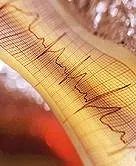Onglyza study reflects new cautious approach to oversight of diabetes medicines, experts say
WebMD News from HealthDay

By E.J. Mundell
HealthDay Reporter
MONDAY, Sept. 2 (HealthDay News) -- The new diabetes drug Onglyza has no effect, good or bad, on a patient's risk for heart attacks, a new study finds. However, the researchers from Brigham and Women's Hospital in Boston did find a surprising rise in hospitalizations for heart failure among those who took the medication compared to those who did not.
The findings should "guide physicians and improve their ability to prescribe different diabetes drugs in a more evidence-based and data-driven way," study co-principal investigator Dr. Deepak Bhatt, of Brigham and Women's and Harvard Medical School, said in a hospital news release.
The study was funded by the drug's makers, AstraZeneca and Bristol-Myers Squibb, and is published online Sept. 2 in the New England Journal of Medicine, to coincide with its presentation at the annual meeting of the European Society of Cardiology in Amsterdam.
Issues around the safety profiles of newer diabetes drugs gained prominence recently after one blockbuster medication, Avandia, was all but pulled from the market in 2010 due to safety concerns. In a journal editorial accompanying the new study, experts noted that after Avandia gained U.S. Food and Drug Administration approval in 1999, "a highly publicized meta-analysis in 2007 reported a 43 percent increase in [heart attacks] and a 64 percent increase in death from cardiovascular causes" tied to use of the drug.
The editorialists say the Avandia experience led the FDA to be highly cautious in its oversight of new diabetes medications, and in 2008 the agency issued a new Guidance for Industry mandating that "preapproval and postapproval studies for all new antidiabetic drugs rule out excess cardiovascular risk."
The new trial into the safety of Onglyza (saxagliptin) is in keeping with the new guidelines. The large, international study involved nearly 16,500 patients with type 2 diabetes from 26 countries.
The participants, who also had risk factors for heart disease, were given either saxagliptin at 5 milligrams per day (or 2.5 mg daily in patients with reduced kidney function), or a dummy pill with no active ingredients. The patients did not know if they were taking the medication or the placebo pill.
Over the course of more than two years, the researchers found the patients who took the diabetes drug were at no greater risk for a heart attack than those who took the dummy pill.
The study showed that cardiovascular death, heart attack, stroke, or hospitalization for unstable angina, coronary revascularization (angioplasty), or heart failure occurred in about 12.8 percent of patients who took the drug, compared to 12.4 percent of those in the placebo group -- not a significant difference.
However, "our data also show an increase in hospitalization for heart failure in patients who received saxagliptin, which was not expected and deserves further study," the study chairman, Dr. Eugene Braunwald of the TIMI Study Group, cardiovascular division at Brigham and Women's and Harvard Medical School, said in the hospital news release.
source : New Diabetes Drug Seems Safe for Heart, Study Finds








